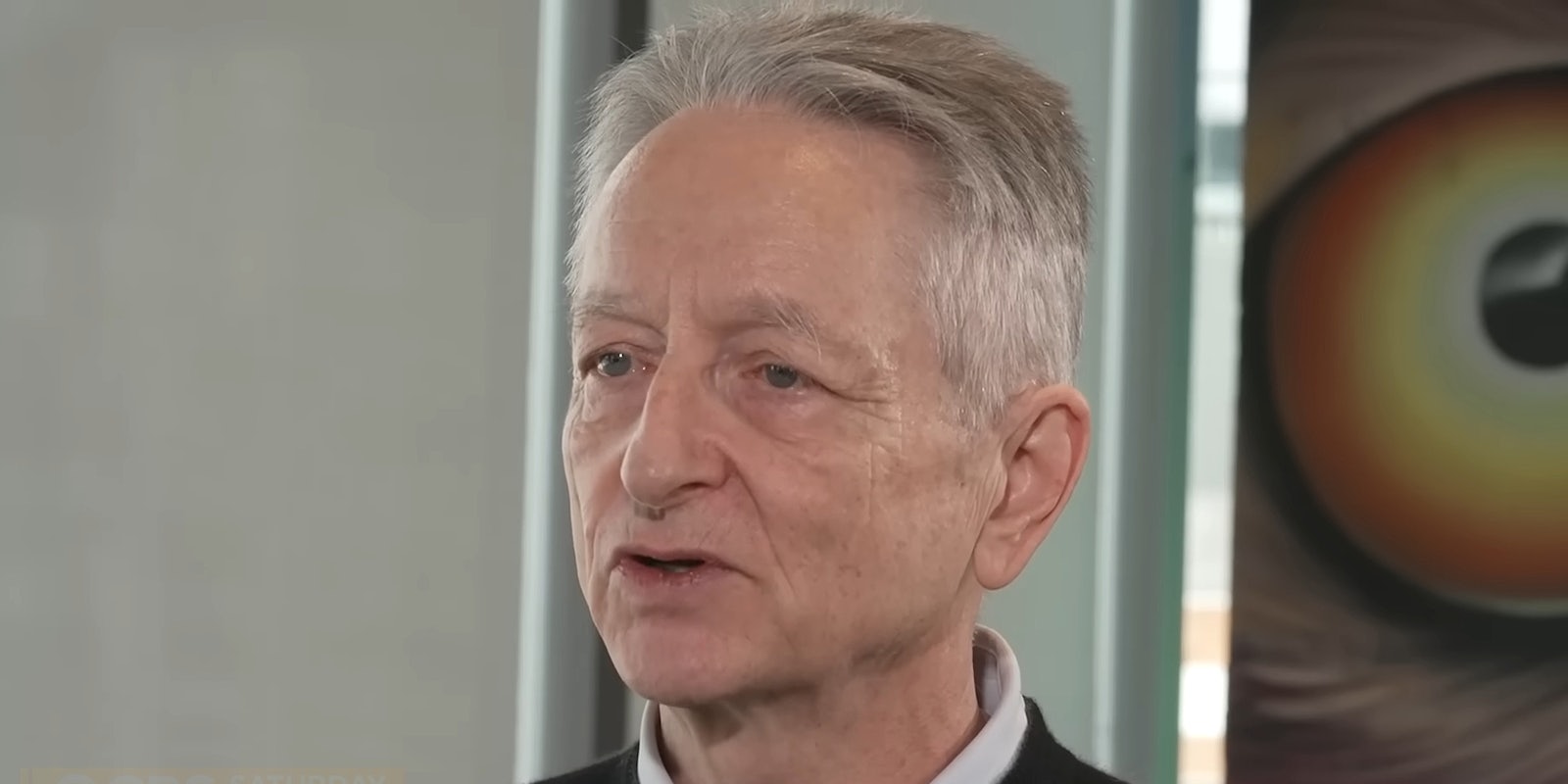Geoffrey Hinton, often referred to as “the Godfather” of artificial intelligence (AI), recently announced his departure from Google over fears that the technology could cause serious global harm.
But Hinton is far from the first to raise such warnings and is facing far fewer consequences than others have in the field.
In an interview with the New York Times, Hinton, a 75-year-old British native who began working on neural networks as a graduate student in 1972, said that within the last year he began to believe for the first time that AI could potentially surpass humans.
“The idea that this stuff could actually get smarter than people—a few people believed that,” he said. “But most people thought it was way off. And I thought it was way off. I thought it was 30 to 50 years or even longer away. Obviously, I no longer think that.”
Hinton’s concerns ultimately led him to leave his lucrative position at Google where he had been working for more than a decade. As his concerns grew within the last year, however, Hinton declined to publicly criticize Google and other companies. Most notably, Hinton chose not to endorse numerous open letters written by his fellow experts that called for a moratorium on the technology.
Given Hinton’s prominence in the world of AI, widespread media coverage has been given to his decision to leave Google. But many in the tech field are pointing to those who opted to blow the whistle while still at their jobs, especially women who were pushed out of their positions shortly after.
Most notably, repeated mentions were made of former Google engineer and researcher Timnit Gebru, who was let go by the company after a dispute over a research paper highlighting the social and ethical ramifications of AI.
Gebru also faced a wave of harassment online in the wake of her departing Google.
“[F]rustrations about the Dr Jeffrey Hinton interview in @nytimes – not least that the concerns he raises are the very same that @timnitGebru and team were silenced on and subsequently squeezed out of Google,” one user wrote.
Others mentioned included AI researcher Margaret Mitchell, who was similarly fired by Google in 2021 after raising the alarm on ethical issues related to the technology.
Meredith Whittaker, the president at the encrypted communications company Signal, also formerly worked at Google and recently vowed never to incorporate tools such as ChatGPT into the company’s apps.
“I’m not arguing w the fact that AI poses risks. I AM ceaselessly annoyed by the pattern,” she tweeted. “This is not new or novel. It was women – @timnitGebru @mmitchell_ai, me, et al – who rang the AI alarm years ago & were retaliated against, pushed out for doing so.”
Regardless of the dispute, more and more experts in AI are sounding the alarm. Concerns over racial bias, misinformation, and other dangers continue to be raised.
And while many press Congress to adopt regulations around AI, others fear that the competitive nature of financial juggernauts such as Google and Microsoft will overpower any efforts to keep the technology under control.



